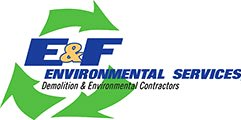Asbestos FAQs
Free Estimates | 24/7 Emergency Services | 30+ Years of Experience
Free Estimates24/7 Emergency Services30+ Years of Experience
Frequently Asked Questions About Asbestos
- What is asbestos?
Asbestos is a mineral fiber and it can only be identified for sure by lab analysis. Before its hazards were known, it was used to strengthen, insulate, and provide fire resistance in a wide variety of materials.
- Why is asbestos considered hazardous now?
Beginning of the early 20th century, asbestos was used for years in homes and industrial environments as an insulating and fireproofing material. Then, after a few decades, health professionals began to make the connection between microscopic particles of asbestos being released into the air and an increase in two types of lung cancer:
Mesothelioma, cancer in the lining of the chest and abdominal cavity
Asbestosis, which occurs when the lungs are scarred with fibrous tissue.
Exposure to asbestos does not produce immediate effects. The damage often is not noticeable until 20 or 30 years later. In addition, the damage done by the asbestos fibers can be exacerbated by smoking.
- Why should I hire a professional to remove asbestos?
Asbestos professionals are specially trained to handle asbestos material. They are not "one-size-fits-all." Some are general asbestos contractors and some are specifically trained to handle specific products containing asbestos.
- What exactly are asbestos professionals trained to do?
Asbestos professionals can conduct home inspections, take samples of suspected material, assess its condition, and advise about what actions should be taken and who is qualified to do the work.
Anyone who comes into your home or place of business to deal with a suspected asbestos issue should have proof that they are trained and licensed by federal and state agencies and have complted EPA-approved training.
- How can I find an asbestos professional in my area?
State and local health departments or EPA regional offices can be a good place to find licensed professionals in your area.
- So I can't hire an "all-in-one" company to deal with my asbestos issue?
Although some companies do offer testing, assessment, and correction services, it is really better to hire different companies for inspection / assessment and correction to avoid a conflict of interest and ensure that you are getting unbiased results.
- Where is asbestos likely to be found in my home?
Here are some possible indications of asbestos in your home:
- Roofing and siding shingles that were manufactured with asbestos cement.
- Home built between 1930 and 1950 often used asbestos as insulation.
- Before its use was banned in 1977, asbestos was used in textured paint finishes and in patching compounds.
- Artificial ashes and embers sold for use in gas-powered fireplaces may contain asbestos.
- Some older stove-top pads may contain asbestos.
- Asbestos paper, millboard, or cement sheets may have been used around wood-burning stoves.
- Old vinyl tiles and backing on vinyl sheet flooring and adhesives may have asbestos.
- Asbestos was used in insulation materials for hat water and steam pipes in older houses.
- Oil and coal furnaces and door gaskets may have asbestos insulation.
- I think my home may have asbestos in it! What should I do?
If the asbestos material seems to be okay and is not crumbling, don't do anything! However, there are some precautions you can take:
- Keep activities to a minimum in the area.
- Don't allow the area to get damaged.
- Do have removal and repair done by people trained in handling asbestos. Make sure to have a professional take a sample to be tested.
- Do not dust, sweep, or vacuum any debris that might have asbestos.
- Don't saw, sand, scrape, or drill holes in suspected asbestos material.
- Don't use abrasive pads or brushes on power strippers to strip the wax from asbestos flooring.
- Also, do not try to sand or level asbestos flooring or backing.

Share On: